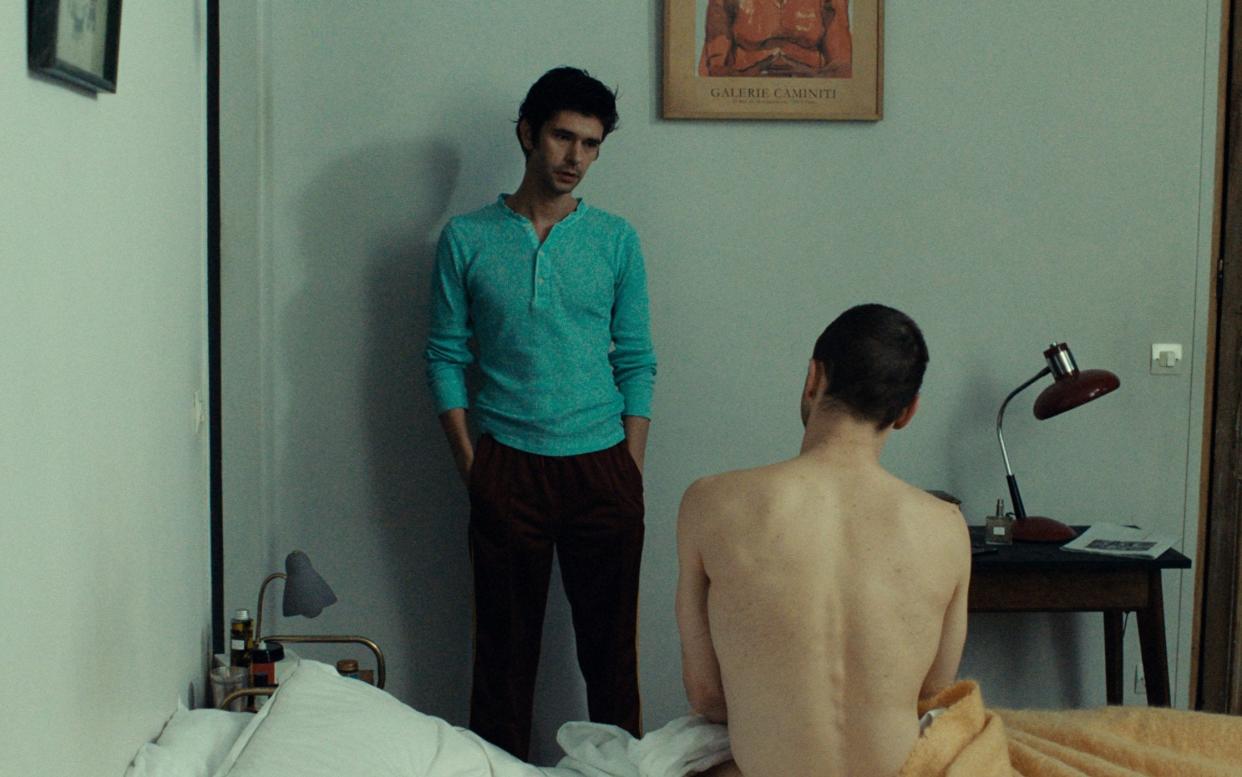Passages, review: Ben Whishaw shines in this compelling, sexually explicit romance

- Oops!Something went wrong.Please try again later.
- Oops!Something went wrong.Please try again later.
- Oops!Something went wrong.Please try again later.
Tomas (Franz Rogowski) is an impetuous film director in Paris, married to Martin (Ben Whishaw), who’s a printmaker. These are some stylish gays: their knitwear looks like no ordinary mortals could afford it. They may have loved each other once, but seem disillusioned to the point of spite. As Ira Sachs’s Passages begins, we’re trying to figure out if the passive-aggressive combat between these two might just be a rocky patch, or curtains.
Helping force things to a head is Tomas’s sudden lust for Agathe (Adèle Exarchopoulos), the first woman in years he’s slept with. While deep in the edit on his latest film – which looks like a moody Fassbinder homage – he’s deeper into Agathe, and plays away all hours of the day. They have sex – usually clothed, hasty, hungry – but Tomas and Martin still do, too, graphically and very believably, when their defences are down. It’s the one thing left between them that really seems to work. After one bound-to-be-18-rated bout, Tomas drops the bombshell. Agathe is pregnant – and keeping it.
This is Sachs’s eighth film and one of his best. It’s probably closest in theme to Keep the Lights On, his 2012 dissection of a tempestuous gay romance in New York City, but that spanned a decade; this is a few testy months of emotional chaos, complicated further when Martin rebounds with a rather doting new boyfriend, Ahmad (Erwan Kepoa Falé). Meanwhile, Tomas is all over the place, swerving between jealousy and mutiny, wanting the best of both worlds, but making all the rules to suit himself.
Rogowski is unfailingly good, etching selfishness non-monstrously; Tomas can be a cruel creature of appetite with no use for a conscience, but it’s still possible to feel sorry for him. Exarchopoulos has her finest scene at the end, without which she might seem comparatively neglected.
From Whishaw, the same scene – the only significant one between these other two – caps some of the most moving and forceful acting he’s ever done. The bursts of fury in his role are matched, ever so delicately, by a feeling person’s empathy, exactly what’s missing in his partner. His 2004 Hamlet at the Old Vic, for me, is the last performance that had such layers.
To see Sachs back on top form, after the semi-wobble of Frankie (2019), is cause for celebration. As often in his films, bourgeois comfort is a façade; resentment’s a cauldron; and the practical setup of people’s lives is in danger of gazumping their destinies. A last sequence especially dazzles, giving us a solo cycle ride through the metropolis, with a day fading, loneliness gaining speed, and no fixed destination.
91 min. Cert 18

